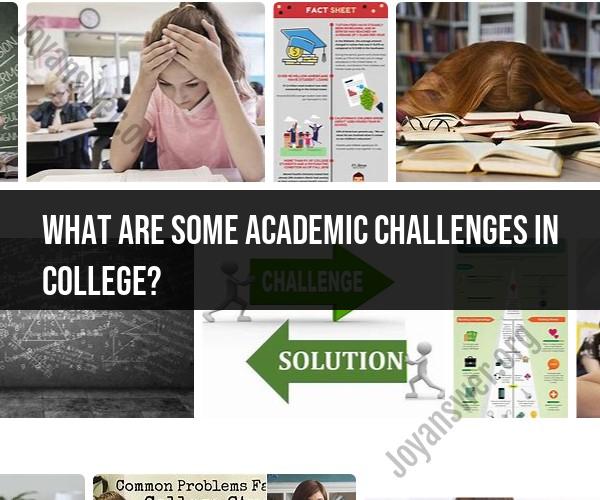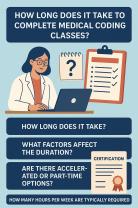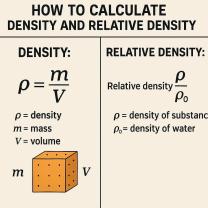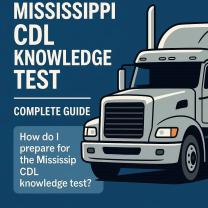What are some academic challenges in college?
College presents a unique set of academic challenges for students as they transition from high school or other educational environments. Some of the common academic challenges that college students may face include:
Increased Workload: College courses often require more independent study and research than high school. Students must manage a heavier workload, multiple assignments, and exams simultaneously.
Time Management: Balancing coursework, extracurricular activities, part-time jobs, and social life can be challenging. Effective time management becomes essential to meet academic demands.
Academic Rigor: College-level courses are typically more academically demanding and rigorous, requiring critical thinking, analysis, and higher-order problem-solving skills.
Self-Motivation: College students must take more responsibility for their learning. Self-motivation and discipline are crucial to attend classes regularly and complete assignments independently.
Complex Subject Matter: College courses delve deeper into specific subjects, often requiring a higher level of understanding and mastery of complex concepts.
Research and Writing: College-level assignments often involve extensive research and writing. Students may struggle with conducting research, citing sources correctly, and producing well-structured essays or reports.
Exams and Testing: College exams may be more challenging and cover a broader range of material. Students may need to adapt to different testing formats, such as essays, multiple-choice, or practical exams.
Adaptation to New Teaching Styles: College professors may have different teaching styles than high school teachers. Students need to adapt to diverse instructional methods and expectations.
Peer Competition: College environments can be highly competitive, and students may feel pressure to perform at their best. This competition can sometimes lead to stress and anxiety.
Financial Stress: The cost of college, including tuition, textbooks, and living expenses, can create financial stress that distracts students from their studies.
Limited Support Systems: Unlike high school, college students often have fewer support systems readily available. They may need to seek out academic advisors, tutors, or counseling services independently.
Large Class Sizes: Some introductory college courses are held in large lecture halls, making it challenging for students to interact with professors and ask questions.
Academic Integrity: Understanding and adhering to academic integrity policies, such as plagiarism rules, can be a challenge for some students.
Technology Issues: Reliance on technology for research, communication, and assignments can be a challenge if students lack access to reliable devices and internet connectivity.
Personal Issues: College students may face personal challenges, such as homesickness, relationship issues, or mental health concerns, which can affect their academic performance.
Balancing Extracurriculars: Engaging in extracurricular activities and clubs can enhance the college experience, but finding a balance between these activities and academics can be tough.
Internships and Work Experience: Many majors require students to complete internships or gain work experience. Balancing work commitments with coursework can be challenging.
Navigating these academic challenges in college often requires developing strong study skills, seeking help when needed, and maintaining a healthy work-life balance. Additionally, colleges typically offer resources and support services to assist students in overcoming these challenges and succeeding in their academic pursuits.
Navigating Academic Challenges in College: Strategies and Solutions
Navigating academic challenges in college can be daunting, but it is important to remember that you are not alone. Many college students face academic challenges at some point in their undergraduate careers. The key is to be proactive and to develop strategies for addressing these challenges.
Here are some tips for navigating academic challenges in college:
- Identify your challenges. The first step is to identify the specific academic challenges that you are facing. This may involve talking to your professors, academic advisor, or a learning specialist.
- Develop a plan. Once you have identified your challenges, you can develop a plan for addressing them. This plan may include setting specific goals, developing study strategies, or seeking extra help from your professors or tutors.
- Be organized. One of the best ways to manage academic challenges is to be organized. This includes keeping track of your assignments and deadlines, and creating a study schedule that works for you.
- Ask for help. Don't be afraid to ask for help from your professors, academic advisor, or tutors if you are struggling. Most professors are happy to help students who are motivated to succeed.
Common Academic Hurdles Faced by College Students
Some of the most common academic hurdles faced by college students include:
- Adjusting to the college workload. The workload in college is often much heavier than the workload in high school. This can be a challenge for students who are not used to managing their time effectively.
- Difficulty with specific subjects. Some students may find that they struggle with specific subjects, such as math or science. This can be due to a variety of factors, such as learning disabilities, lack of prior knowledge, or poor study habits.
- Test anxiety. Test anxiety is a common problem among college students. It can cause students to blank out on exams, even if they know the material.
- Procrastination. Procrastination is another common problem among college students. It can lead to students putting off assignments until the last minute, which can result in rushed and sloppy work.
Overcoming Obstacles to Achieve Academic Success in College
There are a number of things that students can do to overcome the obstacles to academic success in college. Here are a few tips:
- Set realistic goals. Don't try to do too much at once. Set small, achievable goals for yourself and focus on completing them one at a time.
- Develop good study habits. This includes creating a study schedule, finding a study space that works for you, and developing effective study strategies.
- Manage your time effectively. This includes prioritizing your assignments and deadlines, and avoiding procrastination.
- Ask for help when you need it. Don't be afraid to ask for help from your professors, academic advisor, or tutors.
- Take care of yourself. Make sure you are getting enough sleep, eating healthy foods, and exercising regularly. Taking care of your physical and mental health will help you to perform at your best academically.
It is also important to remember that you are not alone. Many college students face academic challenges at some point in their undergraduate careers. The key is to be proactive and to develop strategies for addressing these challenges. If you are struggling, don't be afraid to ask for help.













